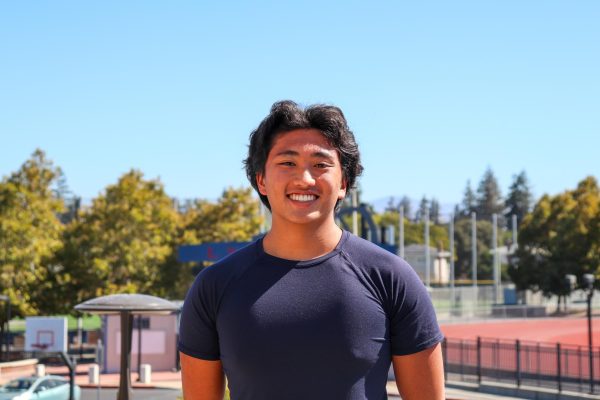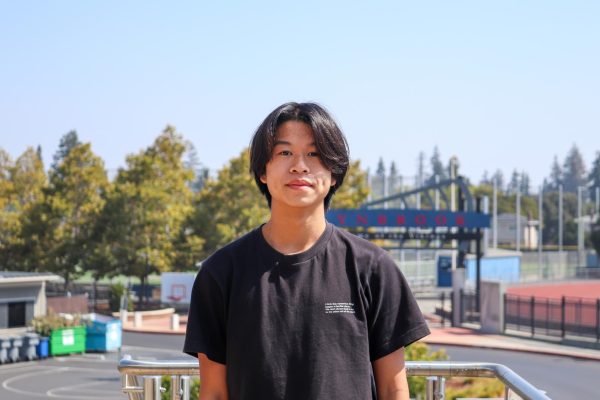What you need to know:
- District 17 Rep. Ro Khanna hosted an antisemitism town hall, in light of recent antisemitism incidents that have occurred across the Bay Area.
- Students from neighboring educational institutions, including Fremont High School, Stanford University and UC Berkely were present.
- Khanna has committed to meeting with school leaders to work to address antisemitic incidents.
Community members gathered at South Peninsula Hebrew Day School in Sunnyvale on Sunday, March 17 to voice their concerns about rising antisemitism. District 17 Rep. Ro Khanna and the Sunnyvale Department of Public Safety had collaborated to host a town hall, which was aimed at addressing recent incidents of antisemitism that have occurred across the Bay Area. Attendees donned blue ribbons to express their support for Israel amid the Israel-Gaza war, as well as yellow ribbons and dog tags to represent their solidarity with the Israeli hostages in Gaza.
“I believe in an America where every person with their narratives and heritage can be treated with respect and dignity,” Khanna said. “You have my commitment to working against antisemitism in this district.”
During this event, local members of the Jewish community shared their recent personal encounters with antisemitism with Khanna. Fremont High School senior Ella Hassner described multiple instances of antisemtism that she and her siblings had experienced firsthand. According to Hassner, both teachers and students had made antisemitic comments directed at her.
“What can you tell me today that you will do to ensure that my siblings and my friends will be protected next year when I graduate and will not be there to do so myself?” Hassner said.
Hassner was one of many students who came to speak to Khanna. Students from neighboring institutions such as Wilcox High School, De Anza College, San Jose State University, UC Berkeley and Stanford University were also in attendance.
According to a current student of De Anza, who attended the town hall, their faculty-run social justice organization had invited Joel Benin, a controversial figure among Israel supporters and a founding member of Jewish Voice for Peace, to speak on the ongoing conflict. Opponents of JVP allege that the organization supports Nazism, citing a JVP social media post on the 1936 Arab revolt in Palestine. The revolt’s leader, Amin al-Husseini, collaborated with Nazis, which, to many opponents, indicated that JVP sympathizes with Nazi ideology.
The student at De Anza was among several other college students who voiced their concerns to Khanna, recollecting their experiences with antisemitism in school settings. Khanna did acknowledge the many failures of prestigious American universities in protecting Jewish students’ rights, but he discouraged calling for the divestment of federal funds from these universities, stressing that there are more democratic ways for these institutions to enact new standards and policies that better protect students’ rights. His stance on efforts to defund universities was met with swift backlash from many attendees, who began to disrupt Khanna and other speakers.
In response to these students’ testimonies, Khanna pledged to reach out to school administrators and officials to work together on addressing the issues raised. Moreover, he stated that he plans to hold additional smaller-scale events to further foster open dialogue and community action on antisemtism.
“The fact that students are not feeling safe in their classrooms, and are not able to express themselves and be proud of their history is wrong,” Khanna said. “We need to have free expression, and that includes respect for people’s Jewish heritage and history.”
Throughout the event, Khanna repeatedly criticized Israeli Prime Minister Benjamin Netanyahu’s approach to the conflict, while still reaffirming his support for the preservation of the Jewish state, citing a long track record of voting in favor of Israeli military aid and Iron Dome funding. Khanna also reiterated his support for a permanent cease-fire, but only on the condition that Israeli hostages return safely.
“My hope for the new generation is that they find some way to a two-state solution that has eluded previous generations’ efforts,” Khanna said. “We’ve got to figure out how to better empathize and communicate with each other, even in the face of heated disagreement.”



































































